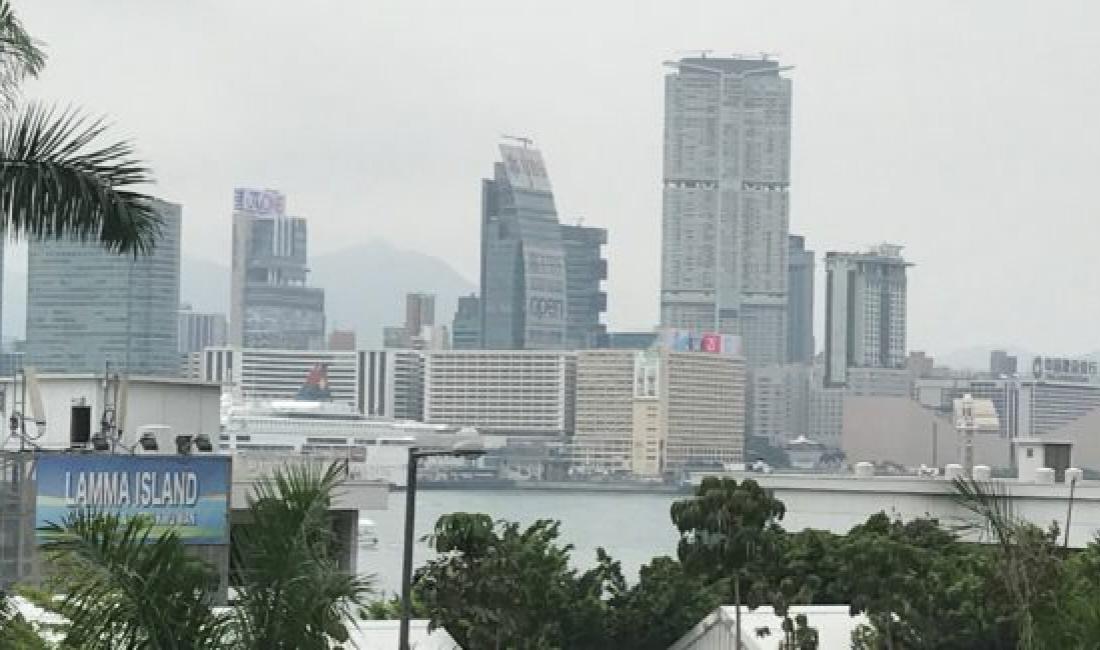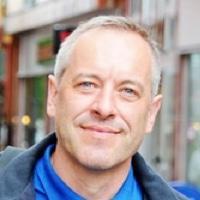Reykjavik, Vienna, Seoul, Los Angeles and Bern: these are pioneering cities in terms of modern participatory and direct democracy. For several years now, increasing numbers of local and regional governments have committed themselves to citizen participation, reports Bruno Kaufmann.
In Iceland´s capital, I struggle to get to Café Paris, where my contact with the city authorities has agreed to meet me. And now I´m standing in the middle of a snowstorm - at the end of October - in front of this coffee house in the centre of Reykjavik, the northernmost capital of the world. "Bert Reykjavik" (Better Reykjavik) is the name of platform of the Icelandic metropolis - where comedian Jón Gnarr, elected mayor in the aftermath of the financial crisis six years ago, promised to "make things different". Of course, not much came of this, and Gnarr threw in the towel after just one term. But his ideas of a "better democracy" have survived.
"Today, all residents are able to tune in to local politics through a new internet platform", as Unnur Margrét Arnardóttir told me at Café Paris. She´s a project manager at the mayor´s office in Reykjavik, where over 130,000 of Iceland´s 320,000 people live today. In the background, a city parliamentary committee is working on a new "democratic constitution" for this city near the Arctic Circle. "This is how the new understanding of a more participatory local democracy is to be anchored in the long term", says Unnur Margrét.
Big fish, small pond
Reykjavik isn't alone when it comes to new democratic beginnings which place citizens at the heart of the decision-making process. Around the globe over the past decade, smaller and larger cities have responded to growing distrust between voters and electors following crises and corresponding political upheavals. In Seoul, South Korea, (ten million inhabitants), Mayor Park Won-soon has reversed the role of the administration within a few years. Instead of working "for the government, the administration now works for the citizens", Park has said.
2016 Global Forum on Modern Direct Democracy
The 6th edition of the direct democracy summit takes place in Basque Donostia/San Sebastián from November 16-19. Approximately 200 participants from more than 30 countries are expected. They come from politics and administration, media and science as well as from non-governmental organisations. The three main themes are:
1) The cities as "motors" of local democratic development
2) The function of the media in direct democracy
3) The dispute over and the future of direct democracy after the Brexit plebiscite
At the international democracy summit, the practice of democracy is the explicit focus. Panels and workshops will make up the bulk of the agenda.
- you can watch all plenary and panel sessions (schedule)
- follow the reporting and blogs of our colleagues at SWISSINFO in English, Spanish, German and Arab
- share your observations and stories on Twitter (#deardemocracy, #globfor) and Facebook
Many city governments have to fight for what is already long established in other places. For example, in the cities, municipalities and cantons of Switzerland, direct democratic rights ensure co-determination for the inhabitants. These rights allow people to bring their own proposals to the authorities´ agenda, or even to bring them to vote via initiatives. By means of the right of referendum, citizens can also question elected politicians´ proposals and, if necessary, allow them to be examined by everyone at the polls.
Central powers that block
But in many instances, legal initiatives to anchor more democracy at the local level conflict with the higher-ranking legislative authorities. This is also the case in the Basque Donostia/San Sebastián in Spain, the venue of this year's global democracy forum. Recently, a Spanish court ruled that a local council regulation was illegal. In concrete terms, this means that a municipal vote in San Sebastián on city funding for bullfights, originally scheduled for February, will not be held.
On the basis that the future of a thriving democracy must begin at the local level, the authorities in Donostia are now trying to get through the legal-political maze - and have attracted experts from over 30 countries to the sixth Global Forum on Modern Direct Democracy. Also at this international conference, representatives from Switzerland will report on the rich experiences and practices with democracy at the local level. Among them is political scientist Andreas Gross, one of the most internationally renowned experts on democracy. Smaller institutions, such as the Bernese political forum Käfigturm, have had imitators for years, even in Asia.
Bolstering big projects democratically
At the same time, new forms of participation have been created in many of the world´s cities, which have not enjoyed the same levels of direct democracy as in Switzerland. For example, the government of the Austrian capital Vienna has committed itself to a comprehensive citizens´ dialogue on major building projects, says Vice Mayor Maria Vassilakou. Responsible for people´s participation in Vienna´s city government, she´ll report on her experiences at the forum in Donostia.
Representatives of the German state of Baden-Württemberg will also present their work. Their aim is to strengthen local participation from the ground up. "On our portal for citizens´ participation, both municipal representatives and individual citizens can get informed, make comments, and participate", explains Fabian Reidinger of Baden-Württemberg´s state ministry. Reidinger will also participate in the forum and report on his experiences in Stuttgart.
Incubator for participatory democracy
The city as a place of "more democracy" will be the subject of various discussions and workshops at the four-day conference. It will also address the latest attempts in Barcelona, Madrid and Los Angeles, which are testing new forms of people´s participation on topics like neighbourhood assistance and budget decisions. And because these local government initiatives don´t always align with the power policy of respective national central governments, as the example from the host city shows, these city democracies want to engage in more cross-border networking and learn from each other by means of "best practices". The Council of Europe in Strasbourg, France, has made an initial start and founded the incubator for participatory democracy, which so far includes 16 cities from 13 countries.





